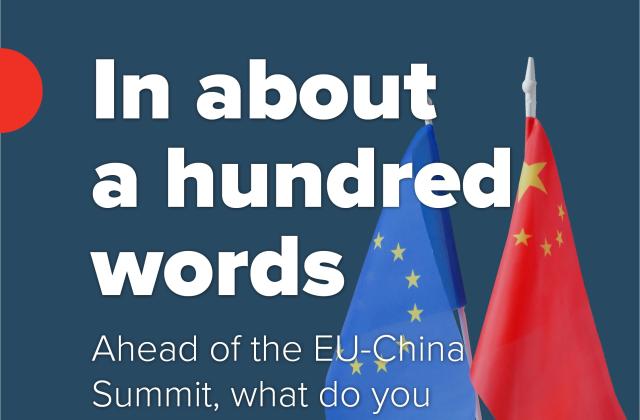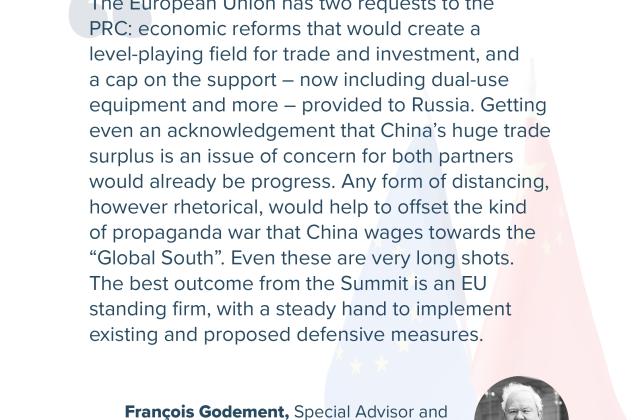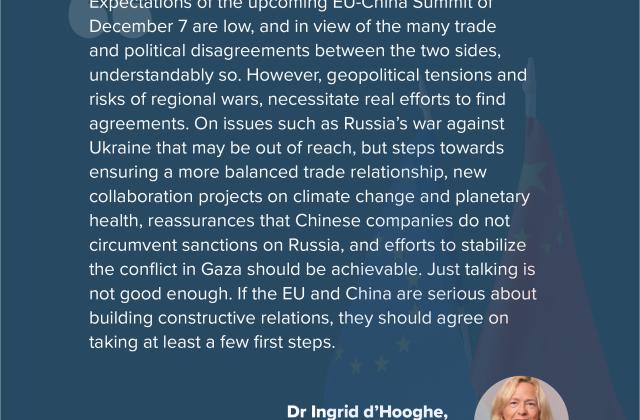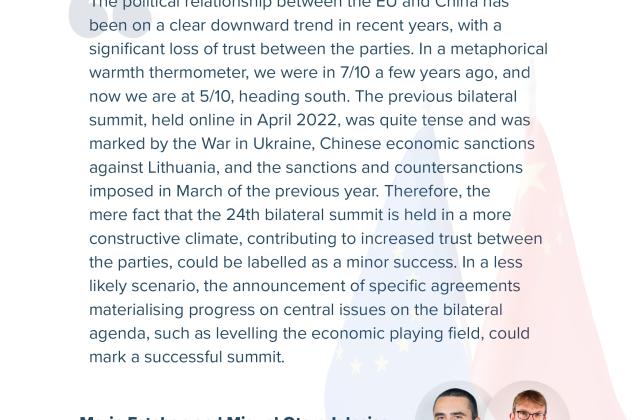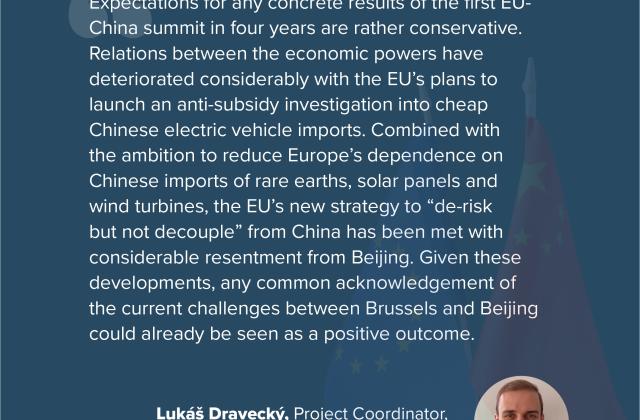In about a hundred words on the 2023 EU-China Summit
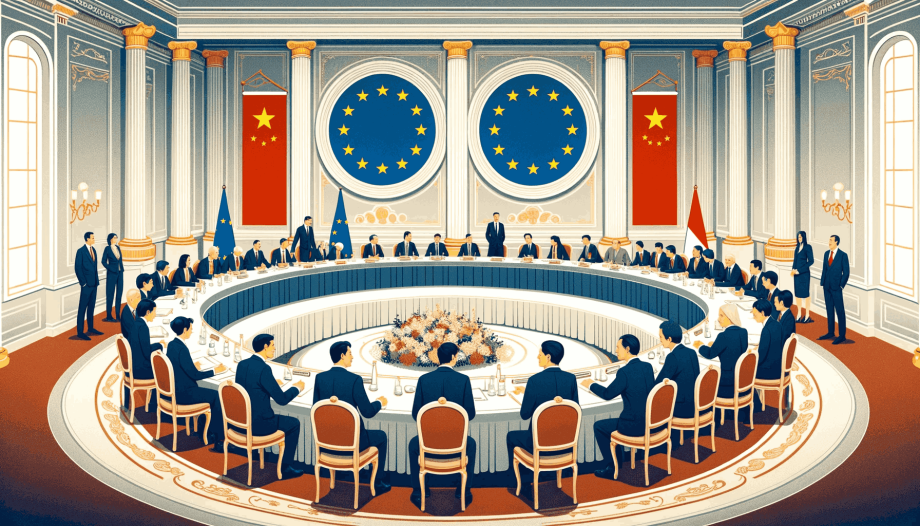
The EU-China Summit is set to begin this week and is sure to generate reverberations across multiple policy strata. GLOBSEC asks experts to give us their take in about a hundred words on. Ahead of the EU-China Summit, what do you consider success?
François Godement, Special Advisor and Resident Senior Fellow - U.S. and Asia, Institut Montaigne
The European Union has two requests to the PRC: economic reforms that would create a level-playing field for trade and investment, and a cap on the support – now including dual-use equipment and more - provided to Russia. Getting even an acknowledgement that China's huge trade surplus is an issue of concern for both partners would already be progress. Any form of distancing, however rhetorical, would help to offset the kind of propaganda war that China wages towards the "Global South". Even these are very long shots. The best outcome from the Summit is an EU standing firm, with a steady hand to implement existing and proposed defensive measures.
Dr Ingrid d'Hooghe, Senior Research Fellow and Coordinator, China Center, Clingendael
Expectations of the upcoming EU-China Summit of December 7 are low, and in view of the many trade and political disagreements between the two sides, understandably so. However, geopolitical tensions and risks of regional wars, necessitate real efforts to find agreements. On issues such as Russia’s war against Ukraine that may be out of reach, but steps towards ensuring a more balanced trade relationship, new collaboration projects on climate change and planetary health, reassurances that Chinese companies do not circumvent sanctions on Russia, and efforts to stabilize the conflict in Gaza should be achievable. Just talking is not good enough. If the EU and China are serious about building constructive relations, they should agree on taking at least a few first steps.
Mario Esteban & Miguel Otero-Iglesias, Senior Analysts, Elcano Royal Institute
The political relationship between the EU and China has been on a clear downward trend in recent years, with a significant loss of trust between the parties. In a metaphorical warmth thermometer, we were in 7/10 a few years ago, and now we are at 5/10, heading south. The previous bilateral summit, held online in April 2022, was quite tense and was marked by the War in Ukraine, Chinese economic sanctions against Lithuania, and the sanctions and countersanctions imposed in March of the previous year. Therefore, the mere fact that the 24th bilateral summit is held in a more constructive climate, contributing to increased trust between the parties, could be labelled as a minor success. In a less likely scenario, the announcement of specific agreements materialising progress on central issues on the bilateral agenda, such as levelling the economic playing field, could mark a successful summit.
Lukáš Dravecký, Project Coordinator, Global Europe Stream, GLOBSEC
Expectations for any concrete results of the first EU-China summit in four years are rather conservative. Relations between the economic powers have deteriorated considerably with the EU's plans to launch an anti-subsidy investigation into cheap Chinese electric vehicle imports. Combined with the ambition to reduce Europe's dependence on Chinese imports of rare earths, solar panels and wind turbines, the EU's new strategy to "de-risk but not decouple" from China has been met with considerable resentment from Beijing. Given these developments, any common acknowledgement of the current challenges between Brussels and Beijing could already be seen as a positive outcome.
